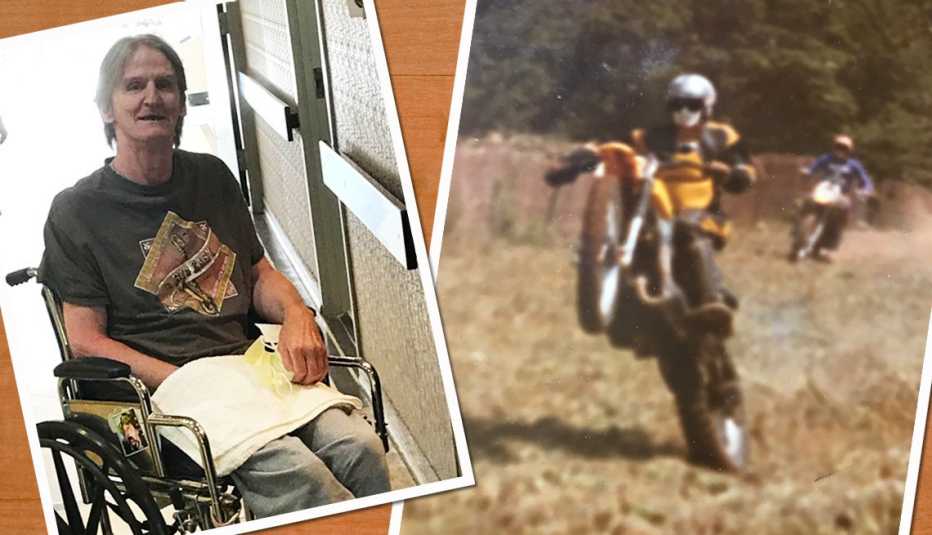Staying Fit


Everyone in Blauvelt, New York, knew John Boyle. His oldest sister, Susan Edwards-McCloskey, says he was outgoing, athletic and planned to be a professional motocross, or off-road motorcycle, racer. But a crash — he skidded out and another racer rode over him — left him with an injured back, wiping out that dream. Instead, his sister says, Boyle became a trusted handyman — until a stroke at 52 nearly killed him.
For more than eight years, Boyle, now 60, has been a resident at the Northern Manor Multicare Center in nearby Nanuet, about 35 miles north of New York City. The family moved him into the facility because it was close to home and accepted Medicaid. He uses a wheelchair, his right side “completely paralyzed,” his sister says. He understands where he is and what he's lost, she adds, but struggles to speak. And for Edwards-McCloskey, the COVID-19 crisis has made her role as protector more difficult than it already was, as the federal ban on nursing home visits enters its third month.


AARP Membership— $12 for your first year when you sign up for Automatic Renewal
Get instant access to members-only products and hundreds of discounts, a free second membership, and a subscription to AARP the Magazine.
A former union steward who spent nearly 30 years with Verizon, Edwards-McCloskey, 67, isn't afraid to speak up. “Everyone there knows my name because if they're not doing what they're supposed to, I start screaming about it,” she says of Northern Manor.
She says she tries to be friendly and knows people are overworked. But she also says she's had plenty to yell about over the years, including moldy food and those two weeks when she says her brother went unbathed. She also claims that her brother hasn't gotten adequate exercise, physical therapy or consistent help to improve his speech.
A spokesman for the nursing home, Jeff Jacomowitz, pushed back on these complaints. He said there are no grievances on file from the family about moldy food or cleanliness issues. He also said Boyle is on record for refusing both physical and speech therapies.

































































More From AARP
Her Husband's in a Nursing Home, Cut Off During the Pandemic
As coronavirus spreads, 'I don't want him to think he's going to die there alone'